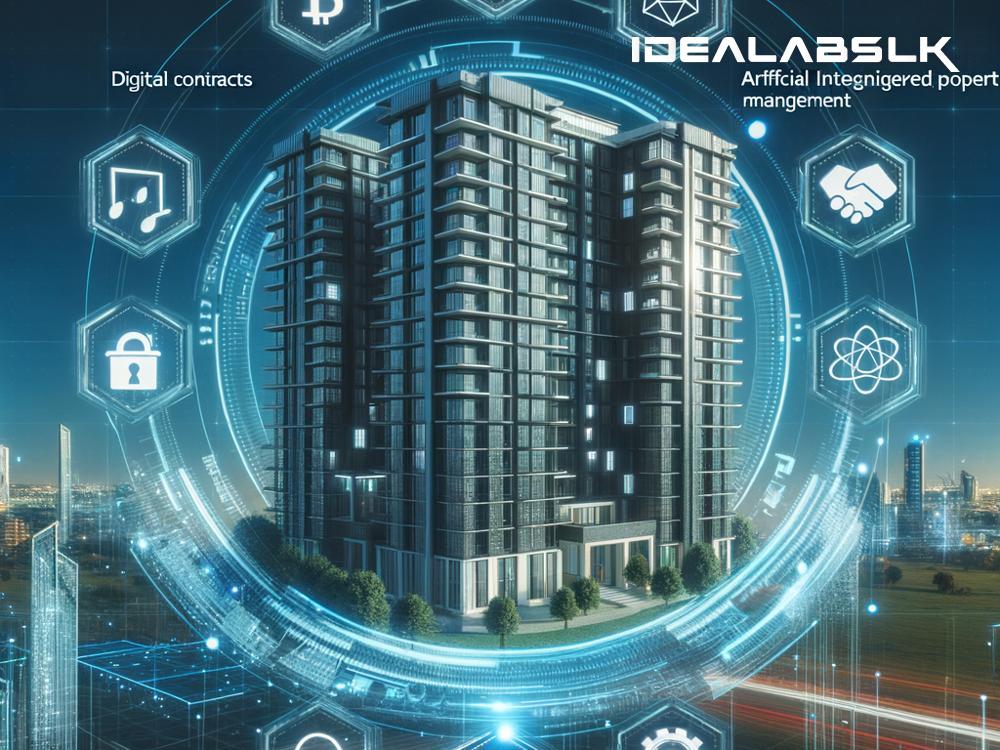Unlocking the Future of Real Estate: How Blockchain and AI are Changing the Game
Introduction
Imagine living in a world where finding and leasing a property is as easy as ordering a book online or where managing a property doesn't mean dealing with piles of paperwork and countless hours of back-and-forth. This might sound like a dream, but with blockchain and artificial intelligence (AI) stepping into the real estate arena, this dream is quickly turning into reality. Let’s dive into how these groundbreaking technologies are revolutionizing property leasing and management.
Blockchain: A New Foundation
Blockchain is often associated with cryptocurrencies like Bitcoin, but its applications go far beyond that. In essence, blockchain is a type of database that records transactions in a way that makes it difficult to hack or cheat the system. Now, how does this translate to real estate?
1. Simplified Transactions
The traditional process of leasing property involves a lot of steps, documentation, and intermediaries like agents and lawyers, which can be time-consuming and costly. Blockchain streamlines these transactions by providing a secure and transparent platform where all the parties involved can directly interact, reducing the need for intermediaries and cutting down costs.
2. Enhanced Security
In real estate, fraudulent activities and data breaches can cause significant losses. Blockchain’s secure nature offers a safer environment for storing and sharing sensitive information, such as contracts and property records, making the leasing process more secure and trustworthy.
3. Smart Contracts
Perhaps the most revolutionary application of blockchain in real estate is smart contracts. These are self-executing contracts where the agreement terms are directly written into lines of code. This means that once the conditions of the lease are met (like payment confirmation), the contract automatically enforces itself, reducing the risk of disputes and making the leasing process smoother and faster.
AI: The Brains Behind the Operation
While blockchain is changing the foundation of real estate transactions, AI is transforming the way properties are managed. Let’s see how AI is making property leasing and management smarter.
1. Better Matchmaking
Finding the right property or tenant can feel like looking for a needle in a haystack. AI uses machine learning algorithms to analyze vast amounts of data about properties, landlords, and potential tenants. By understanding preferences and behaviors, AI can match tenants with their ideal properties much more efficiently than traditional methods.
2. Maintenance and Management
Imagine if your property could tell you when it needed repairs before a small issue becomes a big problem. AI makes this possible through predictive maintenance. By analyzing data from sensors and other sources, AI can predict when parts of a property might fail or need servicing, allowing for better maintenance planning and cost savings.
3. Smart Assistance
AI-powered chatbots and virtual assistants are revolutionizing customer service in real estate. They can handle inquiries, schedule viewings, and even assist with the leasing process 24/7, providing a seamless experience for landlords and tenants alike.
The Power of Combination
When blockchain and AI are combined in real estate, they have the potential to create a truly revolutionary experience. Blockchain’s secure and efficient transactions, combined with AI’s predictive analytics and automation, can significantly reduce the time, cost, and frustration associated with property leasing and management.
The Road Ahead
While the adoption of blockchain and AI in real estate is still in its early stages, the potential benefits they offer are massive. Challenges remain, such as regulatory hurdles and the need for widespread adoption of new technologies, but the momentum is building.
Conclusion
Blockchain and AI are not just buzzwords; they are tools that are reshaping the very fabric of the real estate industry. By making transactions more secure, efficient, and user-friendly, and by revolutionizing property management, these technologies are setting the stage for a future where leasing and managing properties is easier, faster, and better. As we move forward, the marriage of blockchain and AI in real estate promises to unlock new levels of innovation and convenience for everyone involved in the property market. Welcome to the future of real estate.

